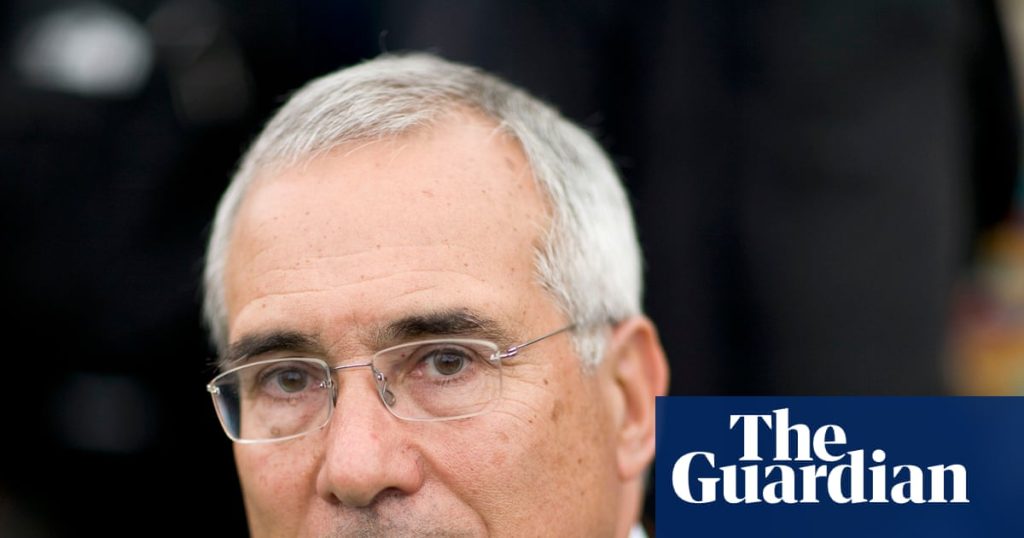Investment in climate action is the economic growth story of the 21st century, while growth fuelled by fossil fuels is futile because the damage it causes ends in self-destruction, the economist Nicholas Stern has said.
The plummeting costs of clean technologies, from renewable energy to electric cars, plus the healthier and more productive societies they enable, meant investments could simultaneously tackle the climate crisis and faltering economic growth, and bring millions of people out of poverty, he said.
This requires big changes in policies and levels of investment and Stern, at the London School of Economics, acknowledged that the geopolitical environment was currently difficult but he said making the rational argument was vital. The US president, Donald Trump, recently called climate change a “con job” and is backing fossil fuel companies to “drill, baby, drill”.
“I’d say to Trump: ‘You’ve got children and grandchildren – think about the science, think about the risks,’ and I’d give examples about the wildfires in California,” said Stern. “I’d point out to him that his place in Florida is going to be extremely vulnerable to more intense hurricanes, sea level rise and storm surges. The people and places he loves are under severe risk.
“The science [of greenhouse gases heating the atmosphere] is simple science – this idea of a ‘con job’ is just wrong,” he said. “I’d point out to Trump that solar beats fossil fuels on electricity across most of the world, including in big parts of the US. The good folk of Texas will be investing in solar and wind because it’s cheaper than the alternatives. It’s much better to invest in the technologies of the 21st century rather than those of the 19th and 20th.”
Stern led a landmark 2006 review that concluded climate action would cost less than the damage caused by inaction and that climate change was the greatest market failure the world had ever seen. His new book, The Growth Story of the 21st Century: The Economics and Opportunity of Climate Action, is published on 5 November.
His conclusions from 2006 remain valid today but have intensified, he said, as the effects of global heating are arriving faster and with more severity than anticipated. “Every time you look at the science, it gets worse,” he said. For example, he said, the tipping points that were thought to be associated with 4C of global heating now look as if they could occur with about a 2C rise.
Despite this, Stern said the economic opportunities climate action presented had also intensified, due to the extraordinary pace of technological development. The cost of solar power and batteries has fallen 80% in the last decade, with offshore wind costs down 73% and onshore wind down 57%. Stern said the growing economies of scale of climate technology, more efficient use of resources and healthier populations – fossil fuel air pollution kills millions a year – would all boost productivity and economic growth.
“It’s a huge opportunity – cities where you can move and breathe are much more productive,” he said. “The world desperately needs to increase the rate of growth [and] low-carbon is the only feasible longer-run growth on offer; high carbon growth self-destructs.”
Stern also had a message for the UK Conservative leader, Kemi Badenoch, who has pledged to scrap the Climate Change Act, and to Nigel Farage, the leader of Reform UK, which is leading in opinion polls, and has called the aim of net zero emissions by 2050 “lunacy”.
“Make an effort to understand the imperative [for climate action] and recognise the huge opportunities,” he said. “Those opportunities are your growth story – inaction is catastrophic.” Analysis in February found the UK’s net zero sector was growing three times faster than the overall UK economy.
The UK Office for Budget Responsibility said in July that the cost of achieving the net zero target was far lower than the cost of inaction, and that rapid declines in the cost of renewable energy meant it was now far cheaper to achieve the target than previously forecast.
Stern said: “I am optimistic about what we can do but deeply worried about what we will do. We’re trying to bring the rational argument to the table and help shape the politics around the world. But If you’re saying that the political discussion is so difficult it cannot possibly be overcome by rational argument, then we’re in for a very hard time.”

